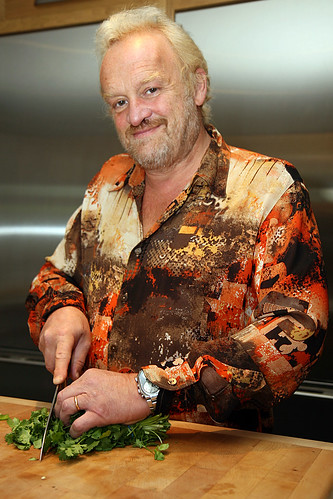pathy |
| Gerard Butler "300" Los Angeles Premiere, By Barbara.Doduk, Flickr.com |
This week the Undercover Homeopath analyses Gerard Butler's psychological profile according to homeopathy principles, and prescribes a homeopathic remedy.
Gerard Butler is a successful Hollywood actor.
He’s been in a few romantic comedies like P.S. I love you, and Bounty Hunter but he is at his best in roles with a very dark side such as Attila, Leonidas, Dracula, Phantom of the Opera, Childers in the Machine Gun Preacher, and his latest: Tullus Aufidius in Coriolanus.
His life has not always been a success, as he puts it: “At 24, I thought dying might be a relief.”
Originally from Scotland, he comes from an educated but modest background. His father abandoned the family when Gerard was 2yrs old, but returned when the actor was 16yrs.
Father and son didn’t have much time to get to know each other as he left the family again when Gerard was 22yrs, this time for good, due to terminal cancer.
His mother according to Gerard is a “lioness”, referring to her courage in bringing up three children single handed, her bravery protecting the family and their home against the neighbourhood thugs, her dignity, and her loyalty towards him even when he was in trouble with the police as a youngster.
A gifted student with a good intellect he went on the study law, but in the end his heart won and he became an actor.
He came into acting later than most actors and without the usual drama school background, but with armed with determination to succeed and the emotional depth that only real life experience can bring…
His characters are strong, powerful, raw, and intense. Their energy is like a radioactive force that emanates from the deepest collective unconscious where it has laid dormant, rising up to permeate our reality.
To watch one of his movies is to be pulled right into the eye of an emotional storm:
Where we can no longer ignore the ugly side of human kind but we must outweigh the reasons for the character's behaviour – we are forced into making our own moral judgement.
Stormy is also the character of this actor – we can sense that his friendly charm has the shadow of a potential storm brewing… referring to his make-up disfigurement in the Phantom of the Opera he says: “It illuminates the ugliness and the beauty that exists within each of us”.
Gerard is now a long way from his wildest younger days: he practises meditation to help him curb his compulsions and to seek his spiritual dimension.
We can sense that he has done a lot of soul searching, and it has paid off:
He has managed to keep his alcohol and smoking addictions under control, and has become a more balanced individual.
He was recently involved in a near death experience: while filming a surf scene he was dragged underwater by powerful waves, in the ambulance on the way to hospital, he had a strong urge to go back and try again…
That's who he is: someone who doesn't give up, someone who thrives on a challenge!
Gerard Butler’s homeopathic remedy is Plutonium Nitricum:
Plutonium is part of the radioactive group of the periodic table: the actinides.
It is a remedy of deep action unto the subconscious, it has a strong desire to dwell into the darkest aspects of the soul as well as a great sense of lightness and exhilaration.
It's a seeker of spirituality, but with a vertical polarity: just as it can reach great enlightenment it can also reach the greatest depths of darkness.
It is well indicated where the patient oscillates between conflicting emotions, in manic depressive states. It's also a remedy for addictions, alcoholism, and strong sexual compulsions.
This remedy carries the primeval archetype of the cave man: they fantasise being powerful warriors, they need an outlay for all that excess testosterone, male sexual energy that is so typical of this remedy. Sexual addiction can also run high in these patients.
Patients desire red meat, they can even suffer delusions of being a vampire craving fresh blood, or dreaming of being bats hanging upside down in the Underworld.
They have a great charisma, even an aura of magic about them.
And Just like Plutonium is a powerful source of energy but can also cause terrible destruction and devastation far reaching both in time and space, so can the Plutonium patient – they can be a great source of inspiration to a vast number of people, they are dynamic and motivating when they are emotionally balanced, but can become unstable easily, they then become needy and energy draining even at a psychic level – from a distance.
Plutonium Nitricum has all of these characteristics but tries to repress them:
The destructive power of Plutonium is now contained by the Nitricum aspect. On doing so, this patient type tends to suffer bouts of depression, with occasional rages of devastating proportions if they are thrown off balance.
They are the type of patient you wouldn’t like to get on the wrong side, and I wouldn’t like to get on Gerard’s wrong side either if you ask me…
By the Undercover Homeopath


![PFC Bradley Manning [Sixth Grade Yearbook]](http://farm6.staticflickr.com/5163/5241598767_942bc53abc.jpg)